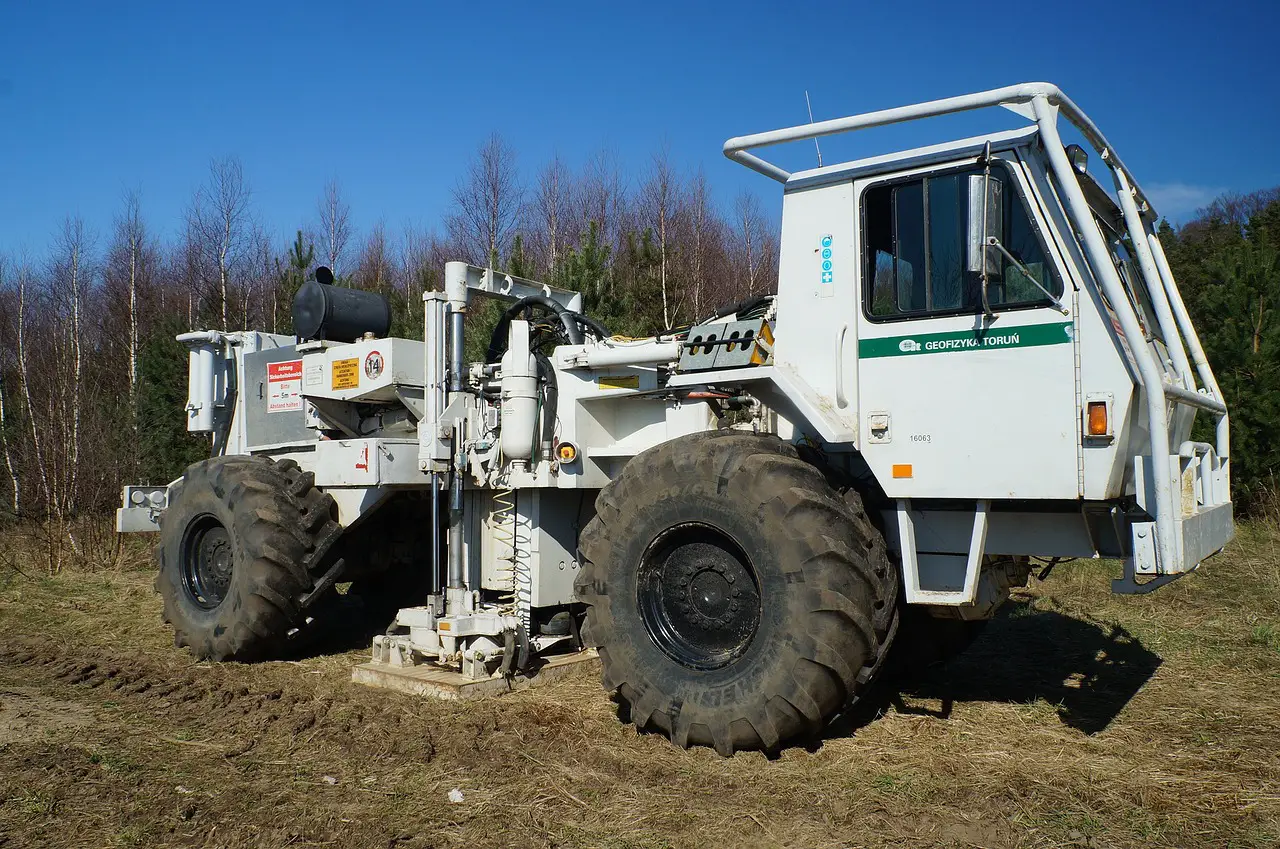30 Careers Related to Geophysics
Geophysics is a captivating field that focuses on understanding the Earth’s structure, processes, and dynamics using physics principles. It plays a crucial role in exploring natural resources, predicting natural disasters, and understanding the planet’s evolution. In this blog post, we will delve into 30 diverse and exciting careers related to geophysics, showcasing the numerous opportunities available to those with a passion for understanding our planet.
30 Careers Related to Geophysics
- Exploration Geophysicist: Exploration geophysicists study subsurface structures to locate and assess natural resources, such as oil, gas, minerals, and groundwater.
- Seismologist: Seismologists analyze seismic waves generated by earthquakes to study Earth’s interior and assess seismic hazards.
- Environmental Geophysicist: Environmental geophysicists apply geophysical techniques to monitor and study environmental changes, such as groundwater contamination and soil properties.
- Geophysical Data Analyst: Geophysical data analysts process and interpret data collected from various geophysical surveys.
- Geomagnetist: Geomagnetists study Earth’s magnetic field and its variations, which provide insights into Earth’s geology and processes.
- Geophysical Instrumentation Specialist: These specialists design and develop advanced geophysical instruments used in surveys and research.
- Gravity and Gravimetry Specialist: Gravity specialists measure the Earth’s gravity field to study subsurface density variations and geological structures.
- Marine Geophysicist: Marine geophysicists study the seafloor and sub-seafloor using geophysical techniques to understand plate tectonics and marine resources.
- Remote Sensing Specialist: Remote sensing specialists use satellite and aerial data to study Earth’s surface features and changes.
- Archaeological Geophysicist: Archaeological geophysicists use geophysical methods to locate and study buried archaeological structures and artifacts.
- Volcanologist: Volcanologists study volcanic processes and assess volcanic hazards to safeguard communities living near volcanoes.
- Geothermal Specialist: Geothermal specialists analyze geophysical data to locate and assess geothermal resources for renewable energy production.
- Geodesist: Geodesists measure and monitor Earth’s shape and movement, essential for accurate mapping and navigation.
- Hydrogeophysicist: Hydrogeophysicists study the distribution and movement of groundwater using geophysical techniques.
- Planetary Geophysicist: Planetary geophysicists apply geophysical principles to study the structure and processes of other planets and celestial bodies.
- Geophysical Modeler: Geophysical modelers use mathematical models and simulations to understand Earth’s processes and interpret data.
- Geophysical Engineer: Geophysical engineers design and implement geophysical surveys for various applications.
- Geophysical Consultant: Geophysical consultants provide expert advice and solutions to industry and research projects.
- Mining Geophysicist: Mining geophysicists use geophysical methods to explore and evaluate mineral deposits.
- Petroleum Geophysicist: Petroleum geophysicists focus on the exploration and production of oil and gas reserves.
- Geophysical Software Developer: Geophysical software developers create specialized software for data processing and analysis.
- Geophysical Project Manager: Geophysical project managers oversee geophysical surveys and research projects from planning to execution.
- Geophysical Data Processor: Geophysical data processors process raw data to create interpretable geophysical images and models.
- Geophysical Educator: Geophysical educators teach and mentor students in academic institutions.
- Geological Hazards Analyst: Geological hazards analysts study geophysical data to assess risks associated with earthquakes, landslides, and tsunamis.
- Geophysical Remote Operator: Geophysical remote operators control and monitor geophysical equipment in the field or from remote locations.
- Geophysical Data Archivist: Geophysical data archivists manage and maintain databases of geophysical data for research and reference.
- Geophysical Mapping Specialist: Geophysical mapping specialists create detailed maps of subsurface structures using geophysical data.
- Climate Geophysicist: Climate geophysicists study the impact of climate change on Earth’s geophysical processes and features.
- Geophysical Technical Support Specialist: Geophysical technical support specialists provide assistance and troubleshooting for geophysical equipment and software.
READ ALSO: 45 Careers Related to Microbiology
Frequently Asked Questions (FAQs)
1. What is geophysics, and what career options does it offer?
Geophysics is a scientific discipline that uses physics principles to study the Earth’s structure, processes, and dynamics. It offers diverse career options in fields such as exploration, seismology, environmental studies, remote sensing, and planetary science.
2. What does an exploration geophysicist do?
Exploration geophysicists use geophysical techniques to locate and assess natural resources like oil, gas, minerals, and groundwater. They play a critical role in resource exploration and development.
3. How can I become a seismologist?
To become a seismologist, a strong foundation in geophysics or geology is essential, preferably with a specialization in seismology. Higher education, such as a Master’s or Ph.D. degree, is beneficial for advanced research and career opportunities in seismology.
4. Are there opportunities for geophysicists in environmental studies?
Yes, environmental geophysics offers numerous opportunities for geophysicists. They use geophysical methods to monitor and study environmental changes, assess groundwater contamination, and study soil properties.
5. Can geophysicists work in the oil and gas industry?
Absolutely. Geophysicists play a crucial role in the oil and gas industry, especially in locating and assessing hydrocarbon reserves, which is essential for exploration and production.
6. What is the role of a marine geophysicist?
Marine geophysicists study the seafloor and sub-seafloor using geophysical methods. They provide insights into plate tectonics, marine resources, and the Earth’s geology beneath the ocean.
7. Are there opportunities for geophysicists in planetary science?
Yes, geophysicists can work in planetary science to study the geophysical properties of other planets and celestial bodies. They contribute to space missions and research on planetary processes.
8. How can I pursue a career in geophysical data analysis?
To pursue a career in geophysical data analysis, a strong background in geophysics, mathematics, and programming is valuable. Specialized courses or certifications in data analysis and software skills are beneficial.
9. Can geophysicists work in the field of environmental conservation?
Yes, geophysicists contribute to environmental conservation by studying natural processes, monitoring changes in environmental conditions, and assessing potential hazards.
10. What skills are crucial for success in geophysics careers?
Key skills for success in geophysics careers include strong analytical abilities, problem-solving skills, mathematical proficiency, computer programming, data interpretation, and fieldwork expertise.
11. Are there opportunities for geophysicists to work in academia?
Yes, geophysicists can work in academia as professors, researchers, and educators in universities and research institutions. They contribute to scientific knowledge and mentor the next generation of geophysicists.
Wrapping Up
Geophysics offers an array of exciting and impactful career opportunities that allow professionals to study the Earth’s hidden mysteries and contribute to vital scientific research. From exploration geophysics and seismology to environmental applications and remote sensing, geophysicists play a crucial role in understanding the Earth’s dynamic processes and resources. Whether you’re passionate about natural resource exploration, environmental conservation, or planetary science, a career in geophysics promises a fulfilling journey of exploration and discovery.
As technology and research in geophysics continue to advance, the demand for skilled professionals in this field is on the rise. Embrace the opportunity to contribute to our understanding of Earth’s complex systems and embark on a rewarding career in the captivating realm of geophysics.









One Comment